Bulgaria Is Only an Illustration of the Process of Restoration in Eastern Europe
Hido Biscevic, Jutarnji list, December 2, 2013
The Croatian daily newspaper Jutarnji list has published today a comment by Hido Biscevic about the protests in Bulgaria and about what actually is behind them in a much broader geographical context. Mr Biscevic is a secretary general of the Regional Cooperation Council, a special coordinator of the Stability Pact for South Eastern Europe. He was an ambassador of Croatia to Russia in the period 1997-2002. We offer you herewith a translation of his comment. Enjoy!
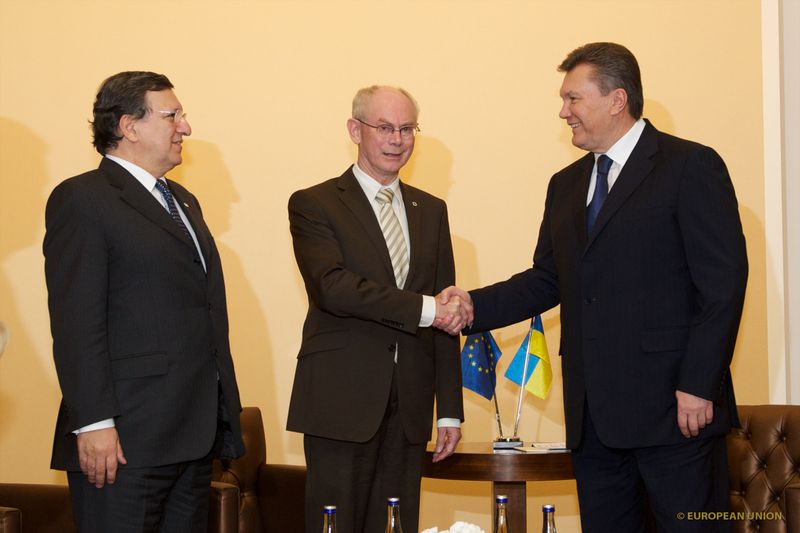
Practically ignored by European media the months-long protests in Bulgaria received a new impetus these days after students rebelled, there was an attack on Parliament and an occupation of universities... You will say "nothing new" - another wave of Bulgarian protests, but they are ongoing for more than a year, as in this short period three governments changed in the country, alternating a right-wing and a left-wing coalition. In fact, these changes proved the complete collapse of confidence in the so called political elite and the rein of total distrust in society, divided between the rebelled urban young Facebook generation and the apathetic majority long excluded, beaten and drugged by the media, which are often mediators between crime and the democratically elected authority.
But in a broader perspective, the Bulgarian example can only be the clearest manifestation of the danger that is already visible in a growing number of post communist countries, in spite of the membership in the Euro-Atlantic community. Today, however, it is very clearly visible that the same syndrome is infecting ever larger territories - mutual binding between institutions and crime, non-functioning systems, unreformed and collapsing public administration, non-productive state-owned or public enterprises which are used as a tool to drain the budget, practically an anarchic introduction of market freedom without creating the necessary legal basis and environment, political and socio-psychological non-acceptance of the own rights as a foundation for security and development, overall exclusion of society which is called upon only to vote, usurping democracy and an alternation of corrupt cycles between the so called left-wing and the so called right-wing, nationalist, populist or other political types, in exchange for taking part in eroding the system, inflaming or not solving bilateral issues between neighbours, lots of corruption, complete social apathy...
There are many examples of "parties on the deck of Titanic"! The message is serious and concerning. It actually shows that EU and NATO membership is first and foremost a geopolitical fact and very rarely an instrument for radical changes, for a "mental modernisation" and leaving the old role models behind. If we have to put the question radically, it is brutally painful: will Europe's current post communist architecture endure or the weakness of the newly built countries will open space for a "reset" in the area which, after the first waves of enlargement of euroatlantism to the European east, remained empty and the Union tried several times unsuccessfully to fill it with the Eastern Partnership as a kind of a "buffer zone" to the border with Russia - which directly affirms that it is again time for encircling "interesting zones".
Ukraine was stolen from the altar two days before the EU summit, again torn apart in two strategic halves, is joining the chain that is starting to look like a kind of a "tampon" between the euroatlantic world and Russia - from Belarus through Moldova, Georgia, Armenia to central Asia. Moscow's old goal - deviating the dangers from direct contact with the EU or NATO borders - to create a new reality at a time when USA is "far", EU is "low" and Russia is rising and recovering only two decades after it was on its knees after the break-up of the soviet kingdom and the communist ideology.
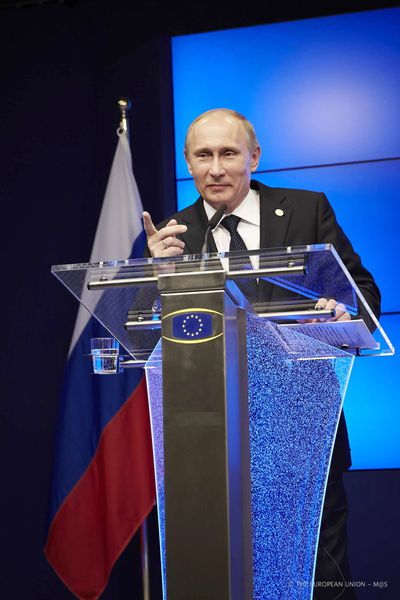 It can safely be said that, at the moment, a "transparency curtain" is being dropped down between that part of Europe, as the only question right now is whether this is the end of the process ... or these developments in Bulgaria, the Russian "messages" to Serbia regarding its possible turning to Putin's Eurasian union instead of the European one, and the very fact that a whole part of the Balkans, southeast from the Croatian border, in fact even farther, is strategically unfinished in terms of the EU and NATO and opens possibilities for a new and not less serious question about the final European security architecture. The laws of empty spaces are always simple - wherever there is no EU, someone else fills the gap. Geopolitics does not accept vacuum. Statistics are not necessarily the best proof of political theses, but it is a fact that among the countries with lowest gross national income in Europe are those which spread from Belarus to Georgia: after Romania, which is 48th in terms of economic strength, all the others are lagging far behind. Ukraine is relatively high, at 50th place, thanks mainly to the gas.
It can safely be said that, at the moment, a "transparency curtain" is being dropped down between that part of Europe, as the only question right now is whether this is the end of the process ... or these developments in Bulgaria, the Russian "messages" to Serbia regarding its possible turning to Putin's Eurasian union instead of the European one, and the very fact that a whole part of the Balkans, southeast from the Croatian border, in fact even farther, is strategically unfinished in terms of the EU and NATO and opens possibilities for a new and not less serious question about the final European security architecture. The laws of empty spaces are always simple - wherever there is no EU, someone else fills the gap. Geopolitics does not accept vacuum. Statistics are not necessarily the best proof of political theses, but it is a fact that among the countries with lowest gross national income in Europe are those which spread from Belarus to Georgia: after Romania, which is 48th in terms of economic strength, all the others are lagging far behind. Ukraine is relatively high, at 50th place, thanks mainly to the gas.
In the long list of fragile economies, weakly functioning states and corrupt systems, to grave concern, are Serbia, Macedonia, Bosnia and Herzegovina, Montenegro, Albania... The transparent curtain could turn into a tribune of the metaphor of post communism: countries are liberated, plundered, endangered. In this regard, he question about the future of the EU enlargement policy is crucial and has a historic significance. Ukraine is only the last warning: what Brussels sees as "cultural and civilisational" transformation of the post communist countries, others see as rough geopolitics. No wonder then are the ideas of a plan B, like for instance the Georgian idea for a federation with Azerbaijan or the idea to restore the common state between Romania and Moldova ... and even the consideration by Turkey of the possibility to join the Eurasian union. These ideas must be perceived as a warning for Brussels.
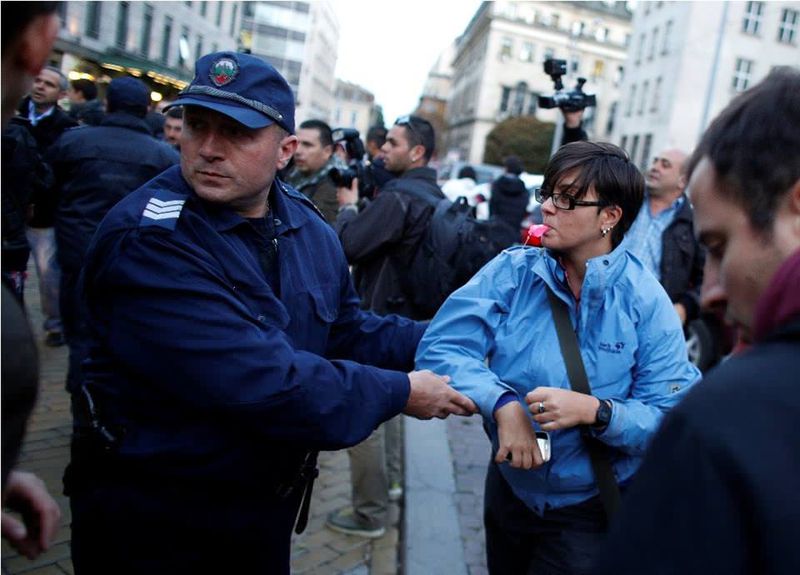 Magdalina Guenova | © Magdalina Guenova
Magdalina Guenova | © Magdalina Guenova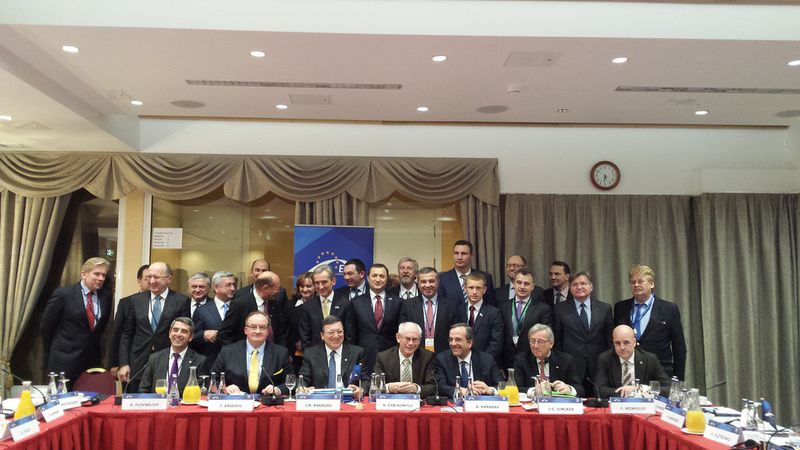 | © EPP
| © EPP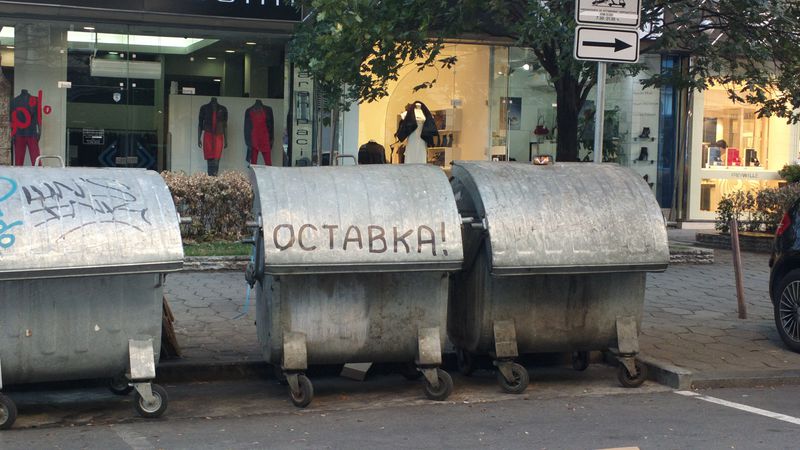 | © euinside
| © euinside